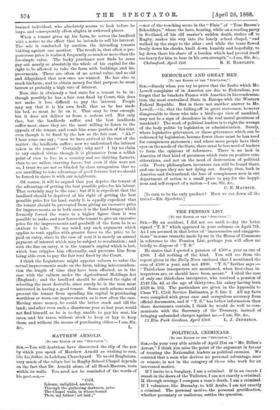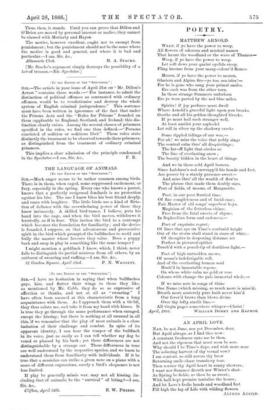POLITICAL CRIMINALS.
[To THE EDITOR OF THE "SPECTATOR."] SIR,—In your very able article of April 21st on "Mr. Dillon's. Arrest," I think you miss the point of the argument in favour of treating the Nationalist leaders as political enemies. We contend that a man who derives no personal advantage, near or remote, is not in the category of those who work for an interested motive.
If I incite to a burglary, I ani a criminal. If in an gineute I smash in the doors of the Tuileries, I am not exactly a criminal. If through revenge I compass a man's death, I am a criminal. If I volunteer, like Burnaby, to kill Arabs, I am not exactly a criminal. The personal motive, the personal gratification. whether pecuniary or malicious, settles the question. Thus, then, it stands. Until you can prove that Dillon and O'Brien are moved by personal interest or malice, they cannot be classed with Moriarty and Hayes.
The motive, however excellent, ought not to exempt from punishment; but the punishment should not be the same where the motive is good and general, and where it is bad and particular.—I am, Sir, &c.,
[Mr. Stacke's argument simply destroys the possibility of a law of treason.—En. Spectator.]



































 Previous page
Previous page